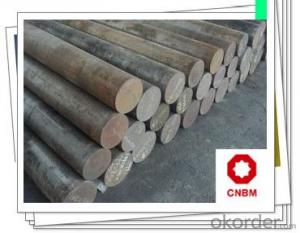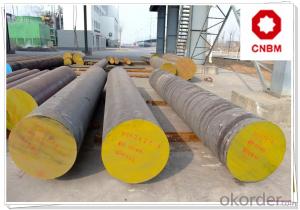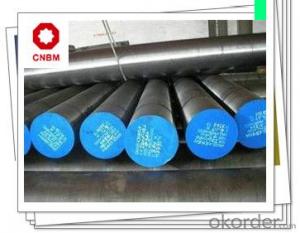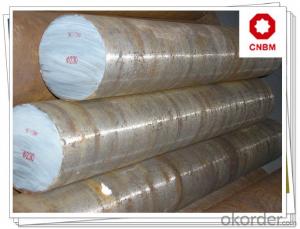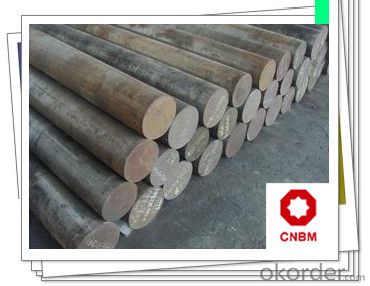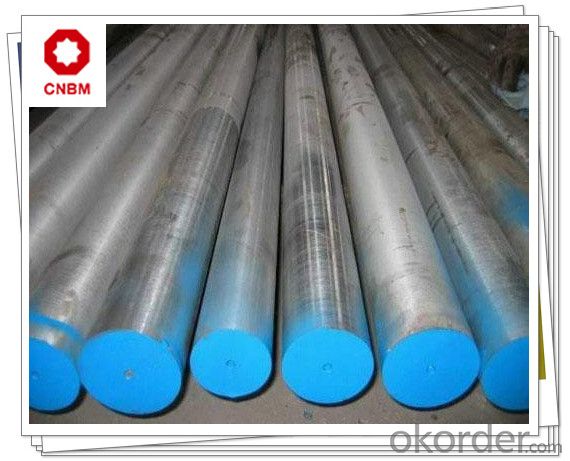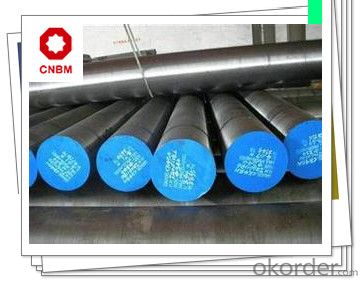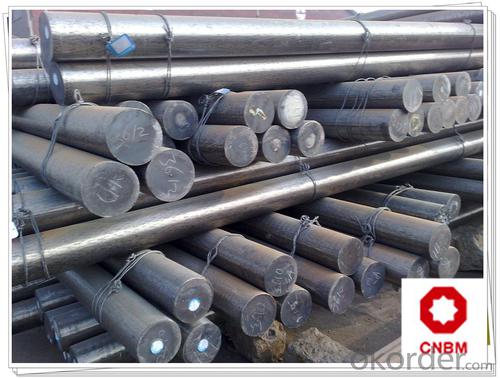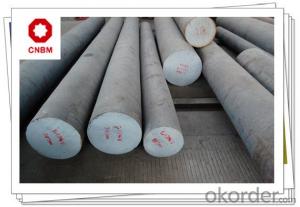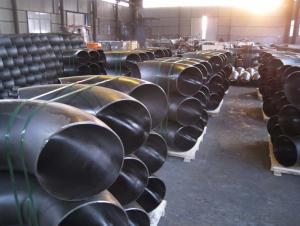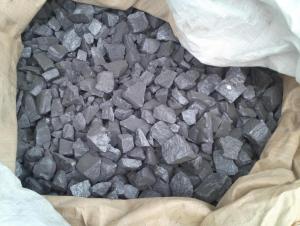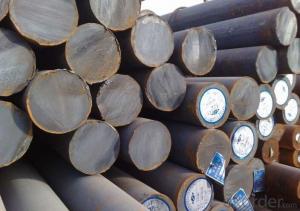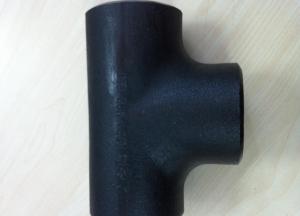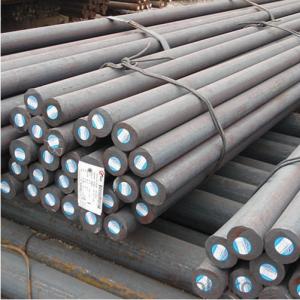45# Carbon Steel Material
- Loading Port:
- Shanghai
- Payment Terms:
- TT OR LC
- Min Order Qty:
- 30 m.t.
- Supply Capability:
- 120000 m.t./month
OKorder Service Pledge
OKorder Financial Service
You Might Also Like
45# Carbon Steel Material
Product Description
Chemical Composition | Mechanical Properties (In Quenched & Tempered State) | ||
C | 0.42-0.50 % | Tensile strength(MPA) | ≥600 |
Si | 0.17-0.37 % | Yield strength (MPA) | ≥355 |
Mn | 0.50-0.80 % | Elongation (δ5/%) | ≥16 |
Cr | ≤0.25 % | Reduction in Area (ψ/%) | ≥40 |
Ni | ≤0.25 % | Impact (J) | ≥ 39 |
P | ≤0.035 % | Hardness | ≤197HB |
S | ≤0.035 % | ||
Cu | ≤0.25 % | ||
1, Diameter: 8mm-250mm rounds
5mm-9mm rods
2, Length: 2m, 3m, 5.8m, 6m or customized
3, Standard: GB, ASTM, AISI, SAE, DIN, JIS, EN
OEM technology - send detailed technical parameters for accurate quotation.
2, Produce Process: smelt iron - EAF smelt billet - ESR smelt billet -
hot rolled or forged to get the steel round bar and plate
3, Heat Treatment: annealing, normalizing, tempering, quenching
4, Surface Treatment: Black, Polished, Galvanized
5, Quality Assurance: We accept third party inspection for all orders.
You can ask testing organizations such as SGS, BV, etc. to test our products before shipping.
Products Show
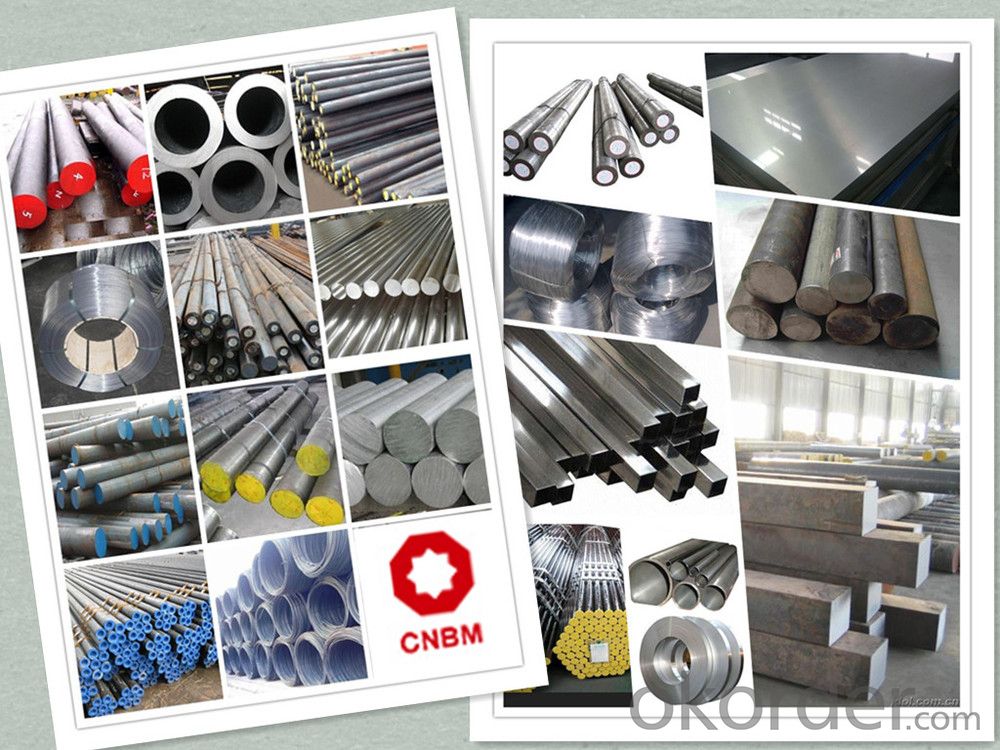
Product Overviews
| Product Name | Typical Grades | Diameter(mm) | Standard adopted |
| Carbon Steel | 20 (1020/S20C/C22) | Ø16-Ø300 |
GB/SAE/JIS/DIN
|
| 40 (1040/S40C/C40) | |||
| 45 (1045/S45C/C45) | |||
| Bearing Steel | GCr9 (51100/SUJ1) | Ø12-Ø250 | |
| GCr15 (52100/SUJ2/100Gr6) | |||
| GCr9SiMn (A485-Gr.1/SUJ3) | |||
Cr-Mo Steel | 20Cr (5120/SCr420H/20Cr4) | Ø12-Ø250 | |
| 40Cr (5140/SCr440/41Cr4) | |||
| 42CrMo(4140/SCM440/42CrMo4) | |||
| Gear Steel | 20CrNiMo | Ø16-Ø600 | |
| 20CrMn(5115/SMnC420/20MnCr5) | |||
| 20CrNiMo(8620/SNCM220/20CrMiMo2) |
Work Shop
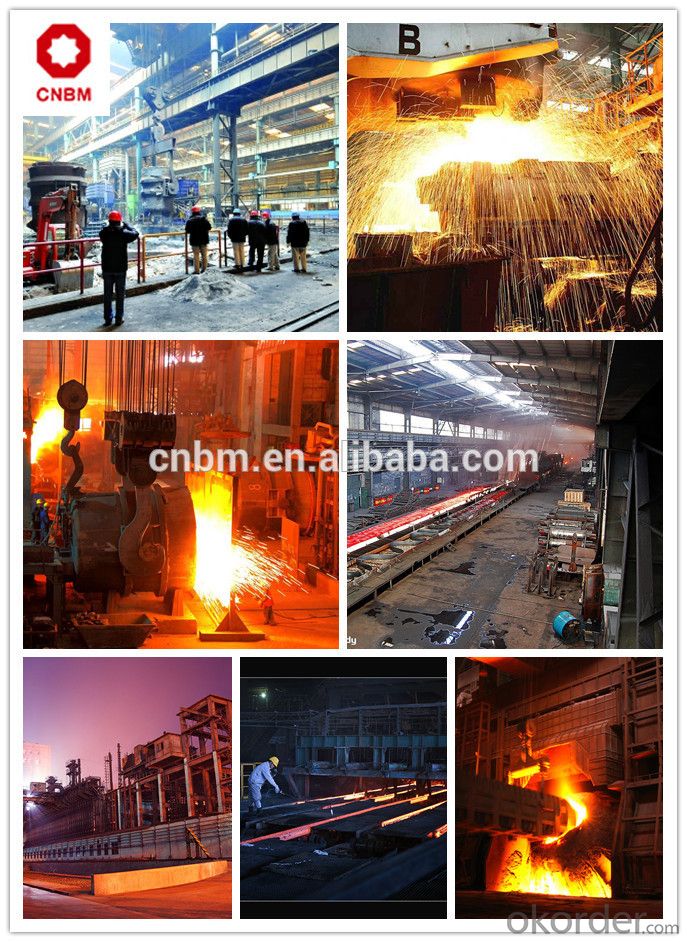
Company Information
CNBM International Corporation is the most important trading platform of CNBM group.
Whith its advantages, CNBM International are mainly concentrate on Cement, Glass, Iron and Steel, Ceramics industries and devotes herself for supplying high qulity series of refractories as well as technical consultancies and logistics solutions.

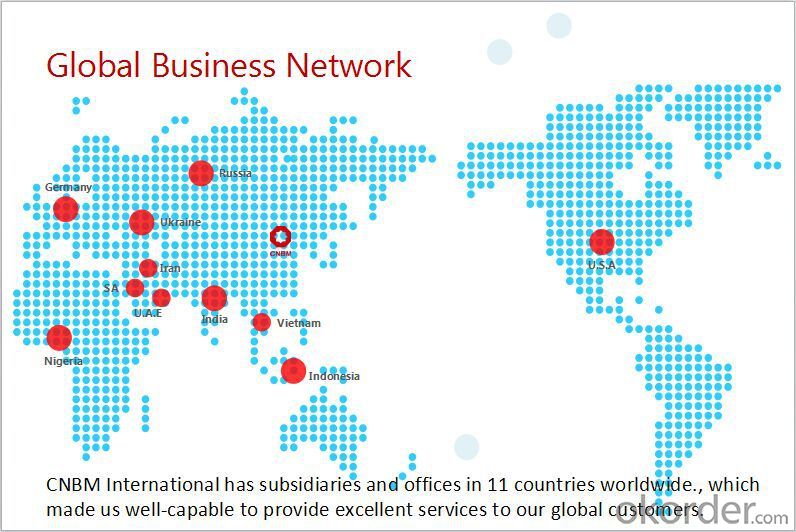
FAQ
1, Your advantages?
professional products inquiry, products knowledge train (for agents), smooth goods delivery, excellent customer solution proposale
2, Test & Certificate?
SGS test is available, customer inspection before shipping is welcome, third party inspection is no problem
3, Factory or Trading Company?
CNBM is a trading company but we have so many protocol factories and CNBM works as a trading department of these factories. Also CNBM is the holding company of many factories.
4, Payment Terms?
30% TT as deposit and 70% before delivery.
Irrevocable L/C at sight.
5, Trading Terms?
EXW, FOB, CIF, FFR, CNF
6, After-sale Service?
CNBM provides the services and support you need for every step of our cooperation. We're the business partner you can trust.
For any problem, please kindly contact us at any your convenient time.
We'll reply you in our first priority within 24 hours.
Packaging & Delivery
1, Packaging: seaworthy package or as required
2, Delivery: 35-45 days or based on quantity
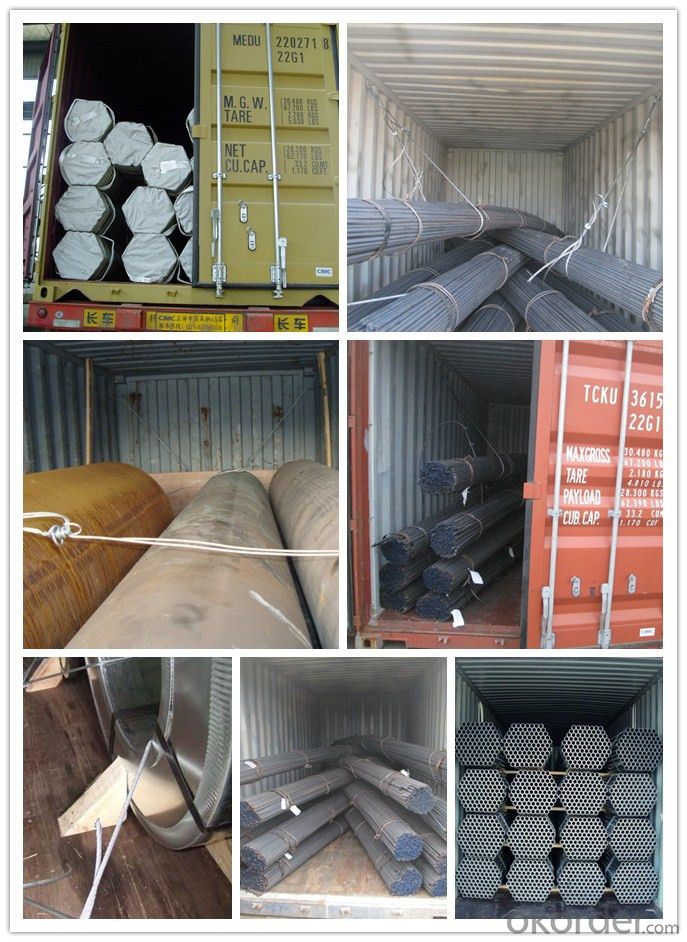
- Q: Can steel round bars be machined?
- Yes, steel round bars can be machined. Machining is a process that involves the removal of material from a workpiece to create the desired shape, size, or finish. Steel round bars are commonly machined to create various components, such as shafts, bolts, and fasteners. Machining processes such as turning, milling, drilling, and grinding can be used to shape and cut the steel round bars. However, the machinability of steel can vary depending on factors such as the composition and hardness of the steel, cutting tools, and machining parameters. It is important to use appropriate machining techniques and tools to ensure accurate and efficient results while machining steel round bars.
- Q: What are the limitations of steel round bars?
- When selecting the appropriate material for a specific application, it is important to consider the limitations associated with steel round bars. Firstly, weight is a significant factor to consider. Steel round bars can be quite heavy, especially in larger diameters. This can pose challenges during transportation and installation, especially in situations where weight restrictions are a concern. Secondly, corrosion is another limitation of steel round bars. Although steel is known for its strength and durability, it is susceptible to rust and deterioration when exposed to moisture or certain chemicals. To mitigate this, protective coatings can be used or stainless steel round bars can be chosen as they are more resistant to corrosion. Thirdly, machinability is a challenge with steel round bars due to their high hardness and strength. This can result in increased tool wear, reduced cutting speeds, and longer machining times, leading to higher production costs. Cost is also an important consideration. Steel round bars, especially those made from high-quality alloys, can be relatively expensive compared to other materials. This cost factor may limit their use in applications with budget constraints. In terms of design flexibility, steel round bars come in standard sizes and shapes, which may restrict design options in some cases. Additional processing steps such as cutting or forging may be necessary to achieve a specific shape or size, adding to the overall production cost. Lastly, fatigue strength is a limitation of steel round bars. Although they have excellent strength properties, they can be prone to fatigue failure under repeated or cyclic loading. This is particularly relevant in applications where the material is constantly subjected to stress or vibration. Despite these limitations, steel round bars are still widely used in various industries due to their exceptional strength, reliability, and versatility. However, it is crucial to carefully consider these factors to ensure that the chosen material meets the specific requirements of the intended application.
- Q: Can steel round bars be used for making camshafts?
- Yes, steel round bars can be used for making camshafts. Steel is a common material used for camshaft production due to its high strength, durability, and resistance to wear and fatigue. Steel round bars can be machined and shaped into the desired profile, making them suitable for manufacturing camshafts that are critical components in internal combustion engines. The specific type of steel used will depend on the application and performance requirements, but commonly used steels include alloy steels or carbon steels with high mechanical properties. Overall, steel round bars offer a reliable and cost-effective option for producing camshafts that can withstand the demanding conditions of engine operation.
- Q: Are steel round bars suitable for the production of springs?
- Yes, steel round bars are suitable for the production of springs. Steel is a commonly used material for springs due to its excellent strength and durability properties. The round shape of the bars allows for easy shaping and forming, making them ideal for spring manufacturing processes. Steel round bars can be easily machined and heat-treated to achieve the desired spring characteristics such as elasticity and resilience. Additionally, steel has a high tensile strength and can withstand heavy loads, making it suitable for applications that require strong and reliable springs.
- Q: How are steel round bars used in the construction of offshore structures?
- Steel round bars are commonly used in the construction of offshore structures due to their high strength and durability. These bars are typically made from carbon steel or alloy steel, which are known for their excellent mechanical properties. In offshore construction, steel round bars are primarily used to provide structural support and reinforcement. They are used in various applications, such as the construction of oil rigs, offshore platforms, pipelines, and subsea structures. One of the key uses of steel round bars is in the fabrication of piles. Piles are long, cylindrical structures that are driven into the seabed to provide a stable foundation for offshore structures. These piles are typically made from steel round bars due to their ability to withstand the harsh marine environment and high loads. Steel round bars are also used in the construction of offshore platforms. These platforms are large, elevated structures that provide a workspace for oil and gas exploration and production activities. The steel round bars are used to create the framework of the platform, forming the main structural elements such as columns, beams, and trusses. These bars are often welded or bolted together to create a strong and rigid structure capable of withstanding extreme weather conditions and heavy loads. Furthermore, steel round bars are utilized in the construction of pipelines that transport oil and gas from offshore wells to onshore facilities. These bars are used to create the pipeline supports, ensuring that the pipeline remains stable and securely fastened to the seabed. In conclusion, steel round bars play a vital role in the construction of offshore structures. Their high strength, durability, and ability to withstand harsh marine environments make them an ideal choice for providing structural support and reinforcement in offshore construction projects.
- Q: How do steel round bars contribute to sustainable construction?
- Steel round bars contribute to sustainable construction in several ways. Firstly, steel is a highly durable and long-lasting material. Steel round bars are known for their strength and resilience, which allows them to withstand heavy loads and extreme weather conditions. This durability ensures that structures built with steel round bars have a longer lifespan, reducing the need for frequent repairs or replacements. This not only saves money but also reduces the environmental impact associated with the production and disposal of construction materials. Additionally, steel is a highly recyclable material. When a structure reaches the end of its life cycle, the steel round bars can be easily and efficiently recycled. This reduces the demand for virgin steel production, which is an energy-intensive and environmentally harmful process. Recycling steel also helps to reduce waste in landfills and conserve natural resources. Moreover, steel round bars can be prefabricated off-site, which offers several environmental benefits. Prefabrication allows for greater precision and efficiency in construction, reducing material waste and energy consumption. It also minimizes noise, dust, and pollution on-site, making construction projects more sustainable and less disruptive to the surrounding environment. Furthermore, steel round bars are often used in sustainable building designs. Steel structures can be designed to maximize natural light and ventilation, reducing the need for artificial lighting and air conditioning. This improves energy efficiency and reduces greenhouse gas emissions. Steel's versatility also allows for flexible and adaptable designs, facilitating future modifications and extensions without significant demolition or waste generation. Lastly, steel round bars are commonly used in the construction of green buildings and sustainable infrastructure. These structures are designed to minimize their environmental impact throughout their life cycle, from construction to operation and eventual decommissioning. Steel's attributes, such as its recyclability, durability, and energy efficiency, make it a preferred choice in sustainable construction practices. In conclusion, steel round bars contribute to sustainable construction by offering durability, recyclability, prefabrication opportunities, energy efficiency, and versatility. By using steel in construction projects, we can reduce waste, conserve resources, minimize environmental impact, and create structures that are built to last.
- Q: How are steel round bars tested for quality?
- Steel round bars are tested for quality through various methods to ensure that they meet the required standards and specifications. One common test is the visual inspection, which involves examining the bars for any visible defects such as surface cracks, pits, or deformities. This is done by highly skilled personnel who are trained to identify any irregularities that may affect the quality of the steel bars. Another important test is the dimensional inspection, which measures the diameter, length, and straightness of the round bars. This ensures that the bars are within the specified tolerances and that they meet the required dimensions for their intended use. Mechanical testing is also conducted to assess the strength and mechanical properties of the steel bars. This includes tests like tensile strength, yield strength, and elongation, which determine how the bars will perform under various loads and conditions. These tests are carried out using specialized equipment and provide valuable information about the structural integrity and quality of the steel bars. Furthermore, chemical composition analysis is performed to verify that the steel bars contain the correct proportions of different elements such as carbon, manganese, and alloying elements. This analysis is crucial as it determines the suitability of the bars for specific applications and ensures that they possess the desired characteristics. In addition to these tests, non-destructive testing methods such as ultrasonic testing, magnetic particle inspection, or dye penetrant testing may also be employed. These techniques can detect internal or surface defects that may not be visible to the naked eye and provide further assurance of the quality and integrity of the steel bars. Overall, a combination of visual inspection, dimensional inspection, mechanical testing, chemical composition analysis, and non-destructive testing methods is used to thoroughly assess the quality of steel round bars. These rigorous testing processes help to ensure that the bars meet the required standards and specifications, providing customers with high-quality and reliable steel products.
- Q: How can steel round bars be protected against corrosion?
- Steel round bars can be protected against corrosion through various methods such as applying a protective coating, galvanizing, using corrosion inhibitors, or implementing cathodic protection. These techniques form a barrier between the steel surface and corrosive elements, preventing or slowing down the process of corrosion.
- Q: Can steel round bars be used in the oilfield equipment industry?
- Yes, steel round bars can be used in the oilfield equipment industry. Steel round bars are commonly used in the manufacturing of various components and structures in the oilfield equipment industry due to their strength, durability, and resistance to corrosion. These bars are often utilized in the construction of drilling tools, pipe fittings, valves, and other equipment needed for oil exploration, extraction, and transportation.
- Q: What is the typical lead time for manufacturing steel round bars?
- The typical lead time for manufacturing steel round bars can vary depending on various factors such as the size and quantity of the bars, the complexity of the manufacturing process, and the production capacity of the manufacturer. In general, lead times for manufacturing steel round bars can range from a few days to several weeks. For standard sizes and quantities, the lead time is usually shorter as manufacturers often have these readily available in stock. However, for custom orders or larger quantities, the lead time may be longer as it involves additional processes such as sourcing raw materials, cutting, heat treating, and quality control checks. It is important to note that lead times can also be influenced by market demand and the manufacturer's production schedule. During periods of high demand or limited production capacity, lead times may be extended. Alternatively, if there is low demand or surplus production capacity, lead times can be shorter. To get an accurate estimate of the lead time for manufacturing steel round bars, it is recommended to contact specific manufacturers or suppliers directly. They will be able to provide more precise information based on their capabilities and current workload.
Send your message to us
45# Carbon Steel Material
- Loading Port:
- Shanghai
- Payment Terms:
- TT OR LC
- Min Order Qty:
- 30 m.t.
- Supply Capability:
- 120000 m.t./month
OKorder Service Pledge
OKorder Financial Service
Similar products
Hot products
Hot Searches
Related keywords
